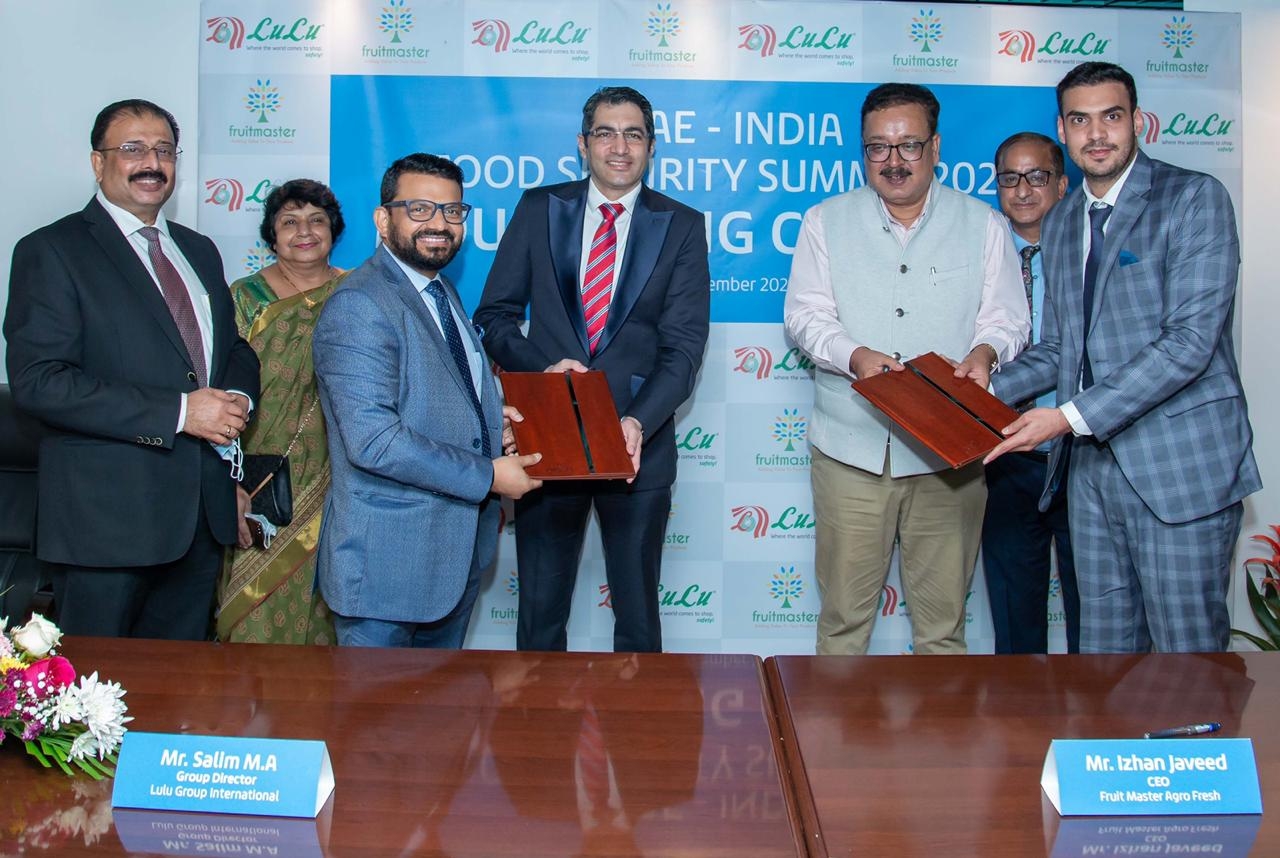Abu Dhabi's Lulu supermarket complicit in settler colonialism in Kashmir, activists say

The Abu Dhabi-based Lulu Group International will set up a food processing plant in the disputed region of Indian-controlled Kashmir, the Indian consulate in Dubai has said, a move activists are describing as aiding settler colonialism in Kashmir.
In a statement released on social media on Thursday, the Indian consulate said that Lulu Group had signed a memorandum of understanding after meeting with a delegation from Jammu and Kashmir, during an ongoing UAE-India Food Security Summit in Dubai.
According to reports, the initial MoU would be worth $8m and create 300 jobs. It has also been reported that Lulu would be looking for land for its processing plant in February 2021.
The announcement was met with fierce criticism from Kashmiri activists and scholars who say the Lulu Group involvement in Kashmir would render them complicit in India's settler-colonial project in the region, which has accelerated since August 2019, when the Indian government abrogated Kashmir's semi-autonomous status.
Stay informed with MEE's newsletters
Sign up to get the latest alerts, insights and analysis, starting with Turkey Unpacked
This development reiterated previous concerns that Delhi had plans to change the demographics in Kashmir.
“While Lulu enters the Kashmiri horticultural industry on the cusp of Indian government’s settler colonial policies, the Indian state is busy destroying the Kashmir’s own hard won horticultural economy - by destroying orchards, limiting Kashmiri traders mobility and cutting communications," Mohamed Junaid, an assistant professor at the Massachusetts College of Liberal Arts, told Middle East Eye.
"It is unlikely that Lulu is unaware of what India is doing, which makes its investment moves in Kashmir not just suspect but also complicit."
"Since 2019, the Kashmiri economy has been in a free fall due to India’s undemocratic moves. The pandemic has only accentuated the effects of India’s lockdowns and communication blackouts already in place in the region," Junaid added.
The Indian government has grown increasingly closer to Israel and the Gulf countries, especially the UAE and Saudi Arabia, over the past decade.
This week, the Indian army chief is visiting Saudi Arabia, a first, that underlines the extent to which ties have improved between the two countries.
Lulu Group International is a massive enterprise of almost 200 hypermarkets in 22 countries across the Gulf Cooperation Council (GCC), Asia and Europe. It's annual turnover is said to be $7.4bn.
Yusuf Ali, the group's chairman and managing director, is close to both the Emirati and Indian political establishments.
During Indian Prime Minister Narendra Modi's visit to UAE in 2019, Ali committed to investing in Kashmir in response to the prime minister's call to invest in the region.
According to Gulf News, Ali said he would be dispatching a team to Jammu and Kashmir and Ladakh to hire staff and source products and raw material towards importing Kashmiri produce to the UAE.
However, Kashmiris have repeatedly argued that the Indian government was using development as a ruse to shift the demographics and colonise the region.
"Kashmir has always been open to investment, but the problem is that the decision to allowing it or what kind investment Kashmir needs is not in the hands of a democratically elected government in Kashmir," Junaid said.
"The Indian government unilaterally decides it for Kashmir, and this news is meant to suggest that the decision to revoke Kashmir’s autonomy is good for Kashmir, when in reality it has been an unmitigated disaster," Junaid said.
The Kashmir Chamber of Commerce and Industries estimated the economic losses since August 2019 at $5.3bn, including half a million job losses.
Horticulture reportedly contributes almost $666,000 annually to the Kashmiri economy. According to government stats, 3.3 million people in the region are directly or indirectly associated with horticulture.
Indian-controlled Kashmir is often described as the most militarised place on earth, with more than 700,000 soldiers, paramilitary and police based in the region.
Middle East Eye delivers independent and unrivalled coverage and analysis of the Middle East, North Africa and beyond. To learn more about republishing this content and the associated fees, please fill out this form. More about MEE can be found here.





